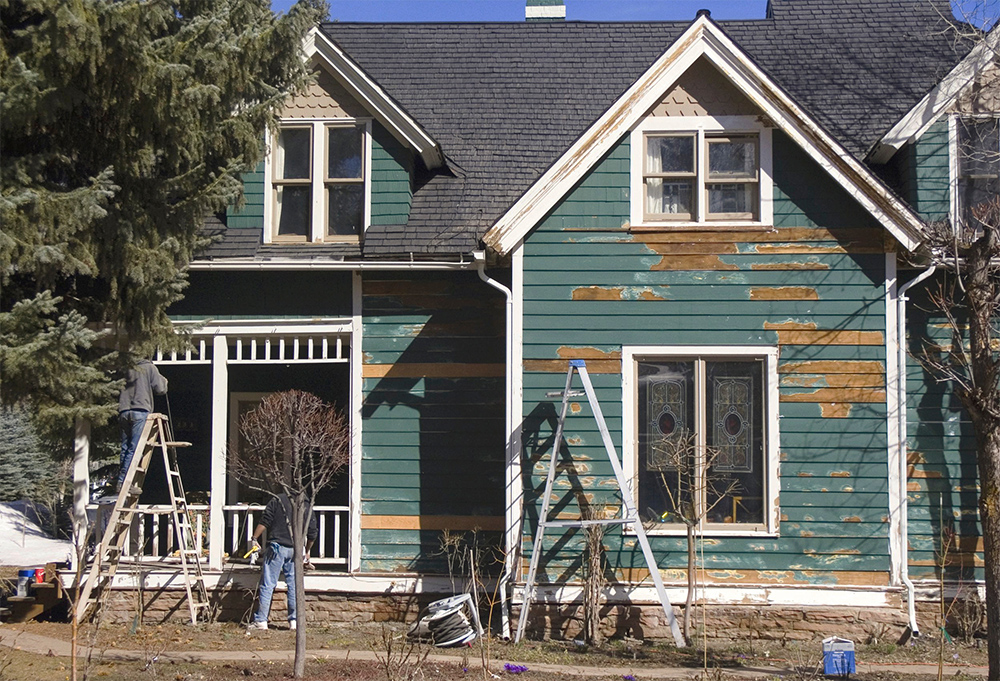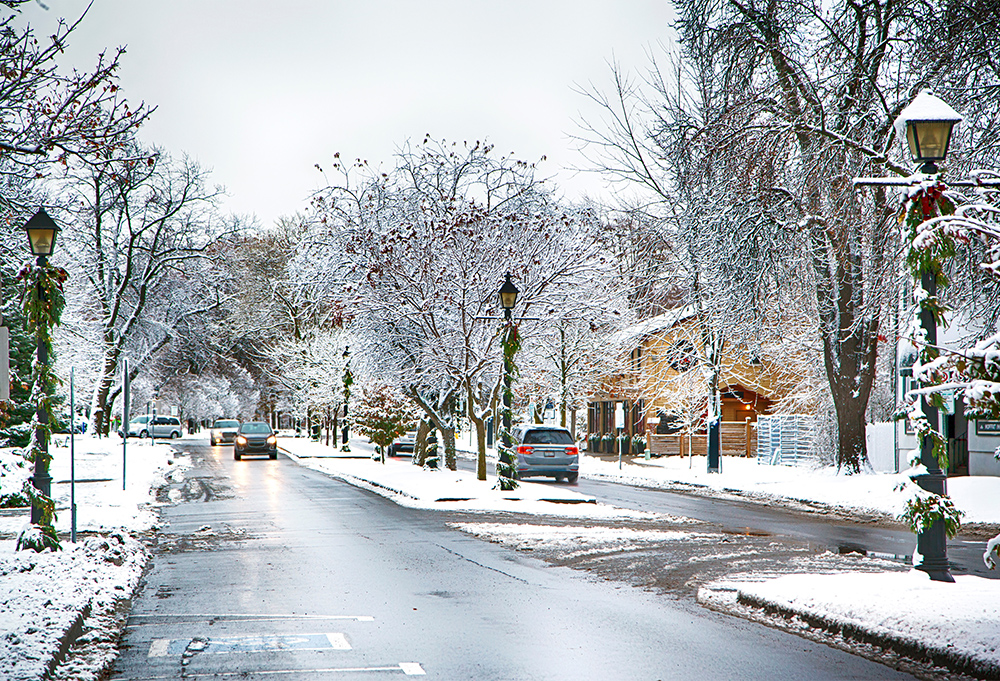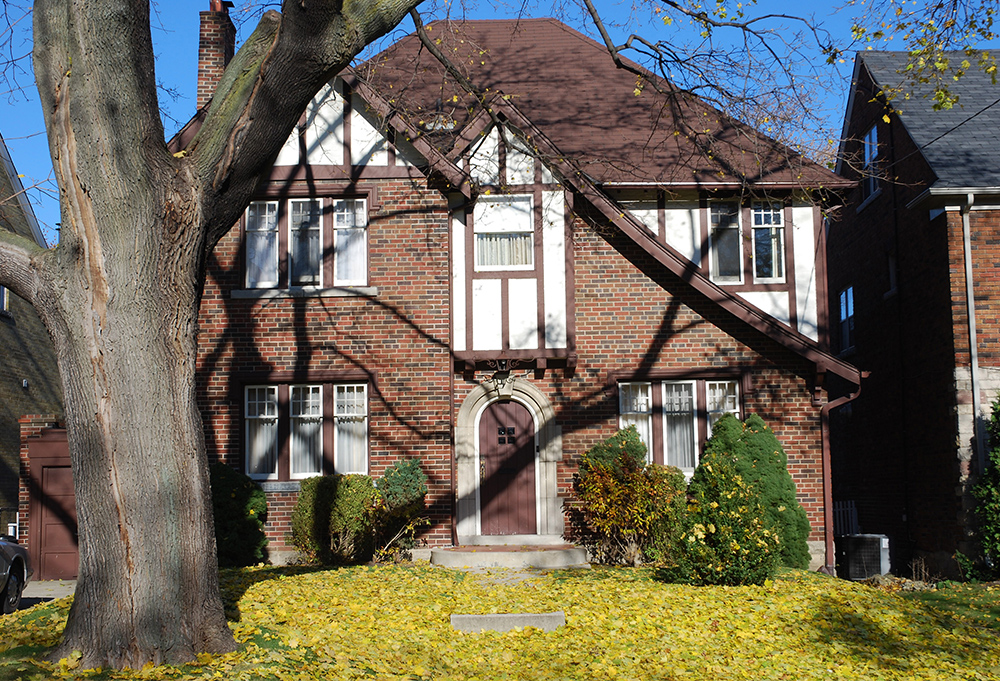REALTORS® Reveal What to Expect When Buying a Historic Home

A historic home has plenty of romantic appeal, especially when it’s nestled in a picturesque small town amid the vivid backdrop of fall’s changing foliage.
Such homes are rich in craftmanship and unique architectural details that reflect the era in which they were built. Exuding timelessness, their connection to history gives them a sense of grandeur and much desired ‘character’ that buyers so often look for. With the beauty and dynamic architecture present across Canada, chances are, Hollywood directors have worked near your neighbourhood. Historical homes are a frequent choice to be romanticized through media, movies and literature. And those that have been well cared for have curb appeal that can’t be matched.
Still, REALTORS® will tell you that, while they love selling this category of home, it does present unique challenges.
Unionville, Ontario is a historic town known for its charming main street, it’s even where they filmed the pilot episode of Gilmore Girls. Katherine Minovski, a broker and REALTOR® at Royal LePage in Unionville, is selling a 3,250-square-foot, 166-year-old home in Markham for more than $2.3 million (as of September 2024). The home has been completely renovated with modern luxuries such as high-end kitchen appliances, two gas fireplaces and California closets, while preserving its original charm and craftmanship. The home has even caught the eye of filmmakers, serving as a set for Hallmark channel movies. The community offers city incentives, such as annual grants for the maintaining the exterior of the home.
“The house was listed throughout the summer. However, with the rates and inflation being as is, it is taking longer to sell,” Minovski says. “These do typically take four to eight months on market unless it’s a bidding war and today is not that type of climate. Many historic homes have a stigma that people feel will impact the home – that they can’t do much to it on the exterior. In this case, the city helps you with grants and those looking to buy in here are interested in the look and feel so why try to change the facades? These homes are built so much better since they were handcrafted as opposed to new modular style homes coming out now.”
Toronto, Ontario, is a common choice for directors for films and television in every genre, with notable projects including Chicago, The Incredible Hulk, and My Big Fat Greek Wedding. Sarah Garner, a salesperson and REALTOR® with Royal LePage Supreme Realty in Toronto, also says there are challenges inherent in buying and selling a historical home, despite any Hollywood potential.
If a property has been held by the seller over years, the buyer might be looking at having to deal with outdated mechanicals. The home may still have knob-and-tube wiring, or asbestos insulation, or no insulation at all. Buyers might be looking at waterproofing issues in the basement or needing to go through the expensive process of underpinning the space (raising the ceiling height). Lead plumbing and outdated heating might also be considerations, Garner adds.
The home might not be equipped with air conditioning. Many conveniences buyers expect might not be built into the home’s architecture, with older homes often having smaller kitchens, fewer closets, and outdated bathrooms.
“The charm of crown moulding, 10-foot ceilings and large principal rooms are great, but a buyer must be informed and willing to take on the possible renovations that will make a century home suitable for this century's lifestyle,” she says. “Aesthetics sell the sizzle, not the steak. Fall colours and snow-dusted eaves have a romantic look, but being the pragmatist that I am I see leaf-clogged eaves and leaking roofs.”
“As REALTORS® we want every listing to look its best but, as a buyer rep, I am looking past the aesthetics and taking a deeper dive into the home inspection and other more salient issues. I have seen some jaw-dropping renovations and restorations of century homes where many of the heritage details have been preserved. An insightful designer and skilled architect can make modifications that maintain the charm but add modern amenities that can result in a hybrid Victorian masterpiece.”

Asif Khan, a broker/owner and REALTOR® with RE/MAX Prime Properties in Toronto, Ontario, says, in his experience, historical homes take time to sell – a property one of his buyers purchased was on the market for close to a year. The amount of work that may be required to upkeep a home of this vintage may scare off many buyers, while the seller waits for the right buyer who appreciates the character of it to come along.
“Small towns definitely have more potential buyers for these types of homes,” Khan says. “The appeal of a historic home on a charming downtown lot in a small town has buyers seeking these out. Although these older homes do have great curb appeal with the large trees lining the street changing colours, this is not the main draw for sales.”
“Fall colours do frame the home nicely and add to the character,” Khan adds. “I sold one in the winter, and the fresh snow-covered trees that lined the street were stunning. The buyer loved the drive up to the home. A well-maintained lot and good curb appeal will increase the likelihood of the home selling, even if the inside needs some work.”

In Calgary, Alberta, Nancy Calvin is an associate and REALTOR® with Royal LePage Benchmark who bought a home built in 1909 in the city’s prestigious Mount Royal (formerly American Hill) neighbourhood. Mount Royal, recently featured in Ghostbusters: Afterlife, is home to Calvin’s converted coach house, completed in the 1940s. With first-hand experience, she says REALTORS® selling in this category need to pack their patience, because buyers are in it more out of a labour of love, and are interested in the history, architecture and general charm factor. That narrows the pool of buyers who are out there.
A big consideration going in is whether the home has a historical designation that is usually overseen by the municipal or provincial government, which might impose certain rules or limitations regarding renovations or additions to the property.
“If you’re replacing windows of a Tudor Revival, turn-of-the-century home, for example, they are going to want to see that you put in similar style and windows architecturally sensitive to the period,” Calvin says.

“For me, it’s the uniqueness of the home,” she continues. “I know with a lot of housing product these days, there’s less distinction. If you walk around a neighbourhood where there are lots of heritage homes, you'll see quite a variety of architectural style and finishings. And what drew me to my home is it's a very charming, cottage-type-looking residence. What I find interesting and appealing is the character of them, the very mature gardens. I have a beautiful, mature garden front and back, which is, of course, a big part of an older property.”
Part of the job when working with a buyer is to help tamp down expectations, which tend to be in part based on curbside aesthetics.
“I think the challenge, with expectation versus reality, is making sure buyers understand that when they embark on that kind of journey, that it's kind of a labour of love … They can expect over time that they're going to have to address a number of infrastructure issues or more integral systems to the home,” such as swapping out old-fashioned, heavy storm glass windows for screens in the summer, Calvin says.





